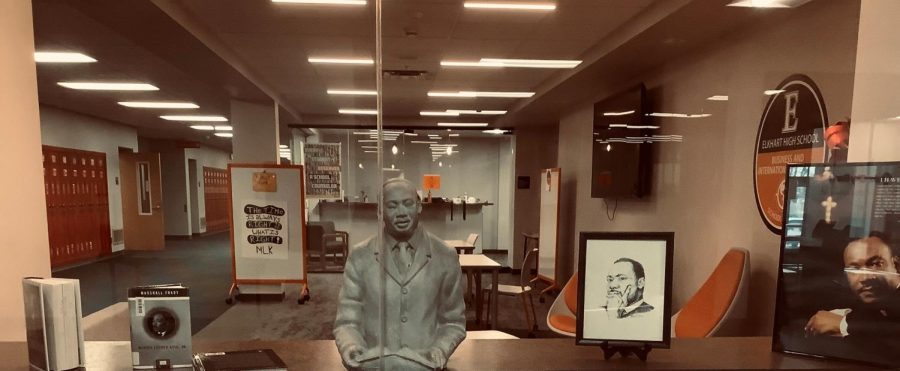BHM: Reflecting On The Past Helps Shine Light On The Future
February 15, 2023
February is now the official time designated for Black History Month. But, segregation officially ended when The Civil Rights Act of 1964 was written. Yet, it had taken 59 years for segregation to slowly come to a close. Such a victory should have concluded in a ginormous celebration where everybody could be treated equally. However, that’s not how change works. And, sometimes, it takes decades to even notice the smallest of advancements.
Looking back might be a good reminder of how far society has come. Starting in 1870s–following the Emancipation Act–the Jim Crow Laws were set out to separate white people from black people–or, as they called them, “colored.” This maltreatment was undeniably brutal on black citizens–even children. Schools focused on separating the two different skin tones for a child’s “better” education. Buses had blacks sit all the way in the back, while whites sat in front. At that time, white people saw nothing wrong with it. It was just the way of the world then. Times have changed.
Aayzah Bullard-Collins, a sophomore, says, “Discrimination was worse back then because, back then, it was more violent. But,”she adds, “as time went on, it had gotten less violent.” It was considered the norm for decades: “Separate but equal.” However, a body can only handle so much inequality. Rebellion and uprising erupted in the 1960s. Marches, protests, and speeches were all part of the stand against racism. People were taking a step forward to create a better future for future generations. Many lives were lost in the process of it all, but the upheaval resulted in the Civil Rights Act being signed into law in 1964. Fast forwarding, Congress passed Public Law 99-244, which designated February 1986 as “National Black (Afro-American) History Month. This law noted that Feb. 1, 1986, would “mark the beginning of the sixtieth annual public and private salute to Black History.”
However, one thought still lingers: Is progress being made? The answer is a resounding Yes. After all that, people have seen progress. The push for more black representation in society has been undeniably influential. America continues to witness many “firsts” in black history–moments in pop culture, media, professions, athletics, and yes, even in presidential elections. When hearing people talk about Black History Month, sophomore Lenniya Howard says, ”I think of how black people overcame [slavery] and made history and whatnot.” But, so much of the change has come in the whatnots. Remembering the roots is always an important reminder to hold onto. Paying homage to all the people who helped African-Americans live and breathe without fear is absolutely imperative. Everybody needs to come together and pay respect to the individuals who fought for years and years to get society to where it is now. The United States is at a critical turning point in history. Making all these efforts noticed is more important than ever–thus, Black History Month.
Although eradicating the discrimination people face on a day-to-day basis isn’t as easy as it sounds, progression is key. Whatever small changes are made today will be reflected in the generations of tomorrow. Therefore, Americans of all colors need to use this time to celebrate the progress that has been made in this country and to renew their vow to pursue unity amongst their neighbors.








